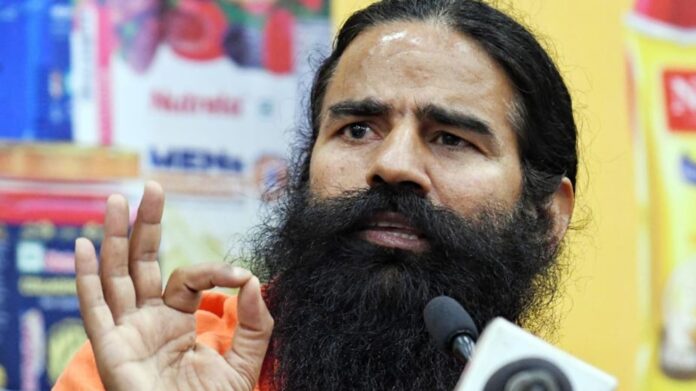In support of a Public Interest Litigation (PIL) petition submitted by BJP leader Ashwini Upadhyay calling for the integration of Allopathy, Ayurveda, Yoga, Naturopathy, Unani, and other systems of medicine as well as a standard curriculum for all medical colleges, Baba Ramdev’s Patanjali Research Institute has moved the
Delhi High Court.
Patanjali’s senior attorney Inderbir Singh Alag appeared in court alongside attorneys Simranjeet Singh and Rhea Dube from Athena Legal, announcing that they had submitted an intervention application in support of the plea’s requests.
The application was not on record, and the bench of Chief Justice Satish Chandra Sharma and Justice Subramonium Prasad ordered the attorneys to place it within a week. The Central government has also submitted a response to the PIL, according to Central Government Standing Counsel (CGSC) Kirtiman Singh, who attended on their behalf.
The petition, according to Singh, is not adversarial in nature. The Court pointed out that even the Center’s answer is not on file and ordered Singh to do the same. On November 11, the Court then scheduled the case for further review.
Instead of the colonial divided medical method, Upadhyay has appealed for the adoption of an Indian holistic integrated medical strategy in his plea. He said that doing so would support the protection of the constitutionally mandated right to health.
A majority of Indians—roughly 70%—live in rural areas, while only five states—Maharashtra (15%), Tamil Nadu (12%), Karnataka (10%), Andhra Pradesh (8%) and Uttar Pradesh (7%), are home to 52% of allopathic doctors.
This, according to Upadhyay, means that rural areas of India continue to lack access to medical benefits, and this is seen in the extremely uneven distribution of the health workforce among States.
“Since doctors are restricted to a small number of States but patients live all over India, this has resulted in the introduction of several health care mediators who are ruining the integrity of the Indian health care system by trying to charge patients more money under the pretence of giving them better care. Due to the ailing persons’ incapacity to cover exorbitant medical costs, this condition is both very unethical and illegal, according to the plea agreement.
Additionally, it was asserted that between the years of 2006 and 2014, the number of prescription drug overdose deaths worldwide grew by 123%, as well as the number of serious but non-fatal consequences.
Despite the understanding of the connection between antibiotic usage and resistance, the PIL asserted that there is widespread misuse and overuse of antibiotics that cost health systems an estimated US$54 billion annually or 0.9% of global healthcare spending. But the Center is not presenting a holistic integrated healthcare system, it was noted. “Many so-called groundbreaking medical innovations have in the long run proven to be harmful, generating severe and long-term side-effects,” it said.






